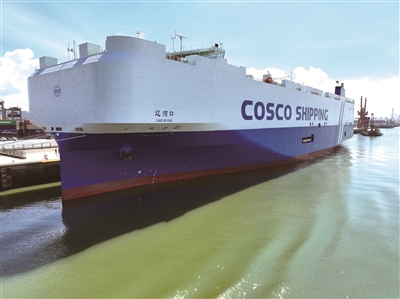Sustainable ship fuel promotes the development of biofuels
Recently, the European Union and the International Maritime Organization have intensively introduced shipping carbon reduction policies, which have brought direct pressure on the international shipping industry. The EU has included shipping carbon emissions into the carbon trading market and has imposed a carbon fee on each ship based on its carbon emissions, and the proportion will increase from 40% this year to 100% in 2026. The International Maritime Organization is also rating ships based on their life-cycle carbon emissions. The author believes that the above policies will inevitably accelerate the process of low-carbon marine fuels and transform the marine fuel market from a single cost competition to diversified competition such as cost, technology, and availability. Looking further, this will also drive the development of the entire biofuel field.

The low-carbon marine fuels discussed in recent years are mainly low-sulfur fuel oils and diesel. However, with the EU's further control of carbon emissions, it is bound to gradually promote the development of ship fuels towards lower-carbon fuels such as biodiesel, liquefied natural gas (LNG), green methanol and green ammonia. Among them, biodiesel is the most economical and low-carbon solution for existing traditional fuel-fired ships. According to people in the shipping industry, biodiesel B30 (30% blended biodiesel) is compatible with the engines and infrastructure of existing traditional fuel-fired ships, and can be directly refilled and burned without modification, which can extend the use time of traditional fuel-fired ships. And under the certification standards of the European Union and the International Maritime Organization, the biofuel portion of the B30 is not calculated for carbon emissions. Therefore, although the market price of B30 is US$840/ton, which is relatively high, the total expenditure is only 14.4% higher than that of traditional fuel oil, and can meet the International Maritime Organization rating requirements before 2028. In the next few years, the blending ratio can be gradually increased to B50 to meet the requirements for rating improvement.
Some market participants believe that in the future, the development of bio-aviation fuels, bio-chemicals and other fields may lead to fierce competition for raw materials and raise the cost of biodiesel. Biodiesel will remain competitive only until the cost of using exceeds that of green methanol. However, the author believes that considering the current development characteristics of biological aviation fuels and biochemical raw oils, the market stimulus from marine biodiesel will help the technological development of these industries, especially cost-cutting technologies. According to data from the General Administration of Customs, in May this year, the average export price of my country's biological aviation fuel was US$2,194.73/ton, while the latest ex-factory price of traditional aviation kerosene was only US$659.41/ton (calculated at the July exchange rate), which restricts the expansion of biological aviation fuel. It is the cost issue. The cost problem is often due to insufficient equipment scale, difficulty in collecting raw materials, etc. The development of marine biodiesel will help establish a larger equipment and raw material collection system and help the development of other biofuels.







